Table of Contents
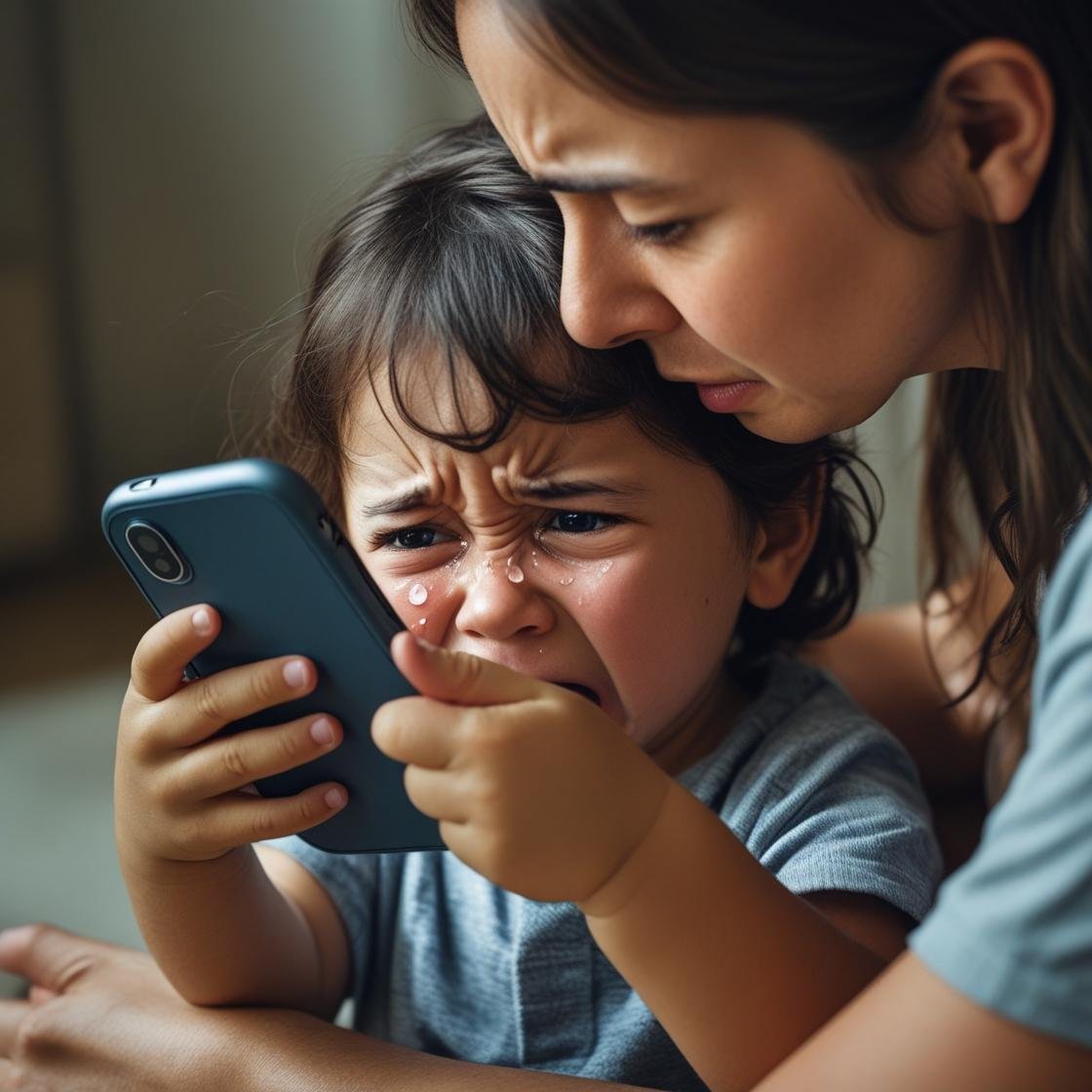
Phone screen time is quietly emerging as the new unseen babysitter in contemporary parenting households. What begins as an innocent means to entertain children for a few minutes tends to evolve into a daily habit. Little Aryan was just six when his parents first realized something was amiss. His happy mornings spent reading storybooks and playing in the backyard were gradually being substituted with temper tantrums, headaches, and constant demands for “just 5 more minutes” on the phone. What went wrong?
This is not Aryan’s alone. It’s a quiet truth intruding into millions of households today. Parents are buried, children are overstimulated, and in the midst of it all—true play, true learning, and true connection are disappearing.
The Trap of Modern Convenience
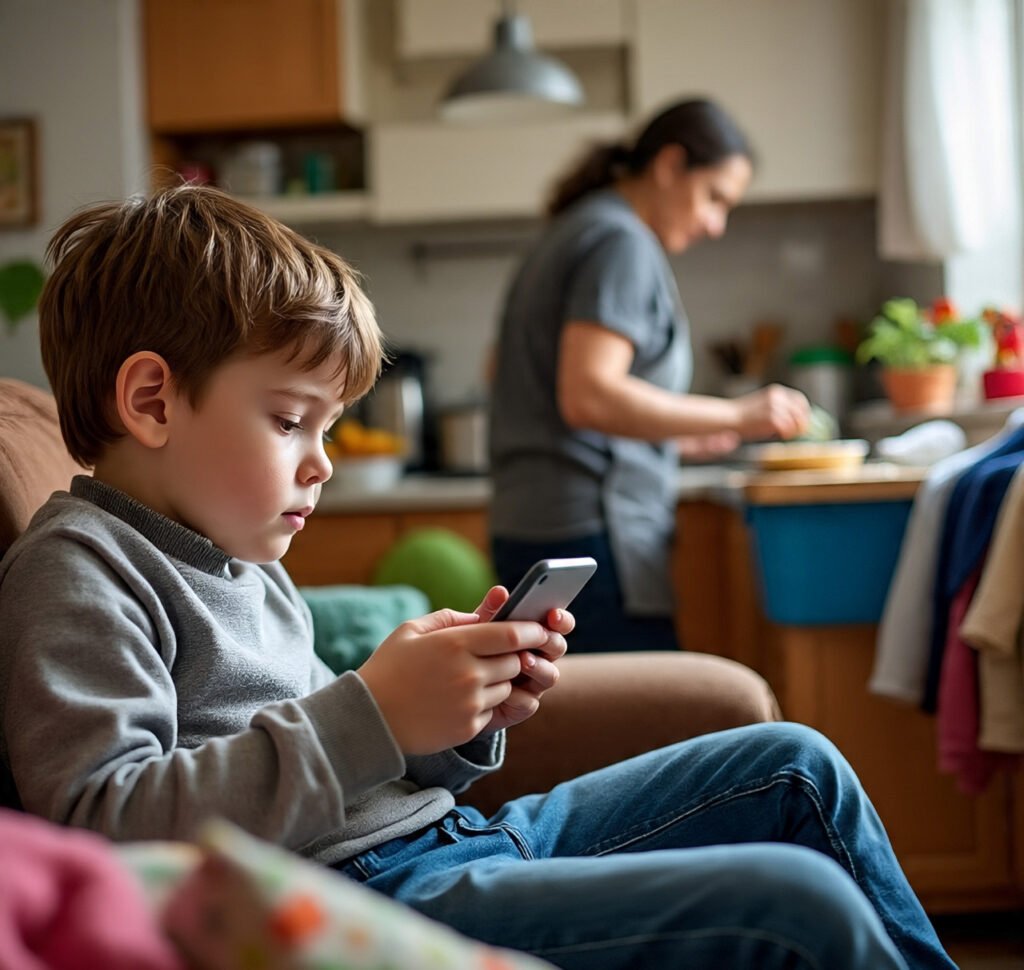
Let’s be real. As mothers and fathers, we balance work deadlines, housework, and emotional burden on a daily basis. And when the phone saves the day—be it cartoons during dinner preparations or games for a long car trip—it’s like a blessing from heaven. But at what price?
Research indicates that 5 to 14-year-old children spend over 8 to 10 hours a day on screens. And the reality is—it’s not all learning. A lot of that time is passive scrolling, viewing random videos, or playing games with zero learning value. The risk isn’t just the amount of screen time—but the quality of that time.
That’s where FocusFun comes into the picture—not as an additional screen, but as a wiser screen time solution.
Aryan’s Turning Point: The Day Learning Became Fun

Aryan’s parents were at their wit’s end. His concentration span was dwindling. His mood swings were at an all-time high. Conventional tuition was no longer working. That’s when another parent recommended they try FocusFun, a platform not only to cut down screen time, but to make it smart time.
Rather than mindless staring at shiny animations, Aryan was now working on puzzles, completing math quizzes, and doing word games that challenged him. His screen was no longer his coping mechanism. It was now his instrument.
And the best thing? Aryan didn’t even know he was learning. To him, it was all just fun. But to his parents—it was the start of hope.
What Exactly Is Too Much Phone Screen Time?
It’s recommended by experts that kids between 3 and 14 years of age should have less than 2 hours of recreational screen time each day. But the catch here is that not all screen time is created equal.
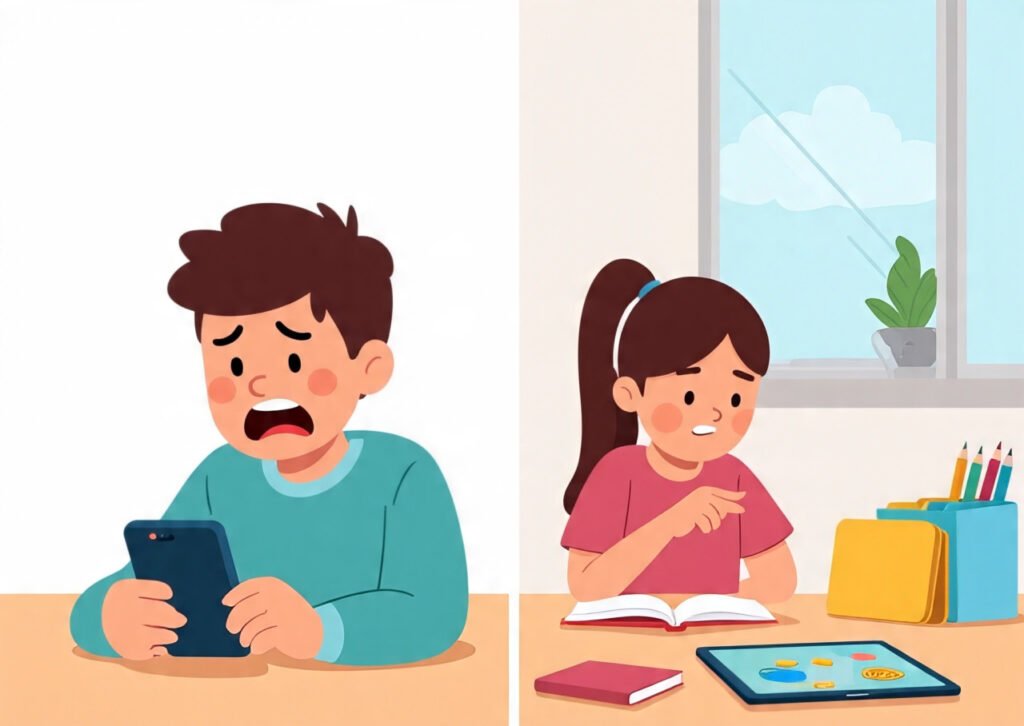
- ❌ Passive screen time (such as watching arbitrary videos or infinite reels) results in decreased attention spans and decreased sleep quality.
- ✅ Active screen time (such as educational games that are interactive) increases cognitive growth, problem-solving, and creativity.
So rather than always insisting on “No screen!”, picture insisting on “Yes, but smart screen!” That’s the FocusFun philosophy.
The 5 Silent Signs Your Child Is Getting Too Much Screen Time
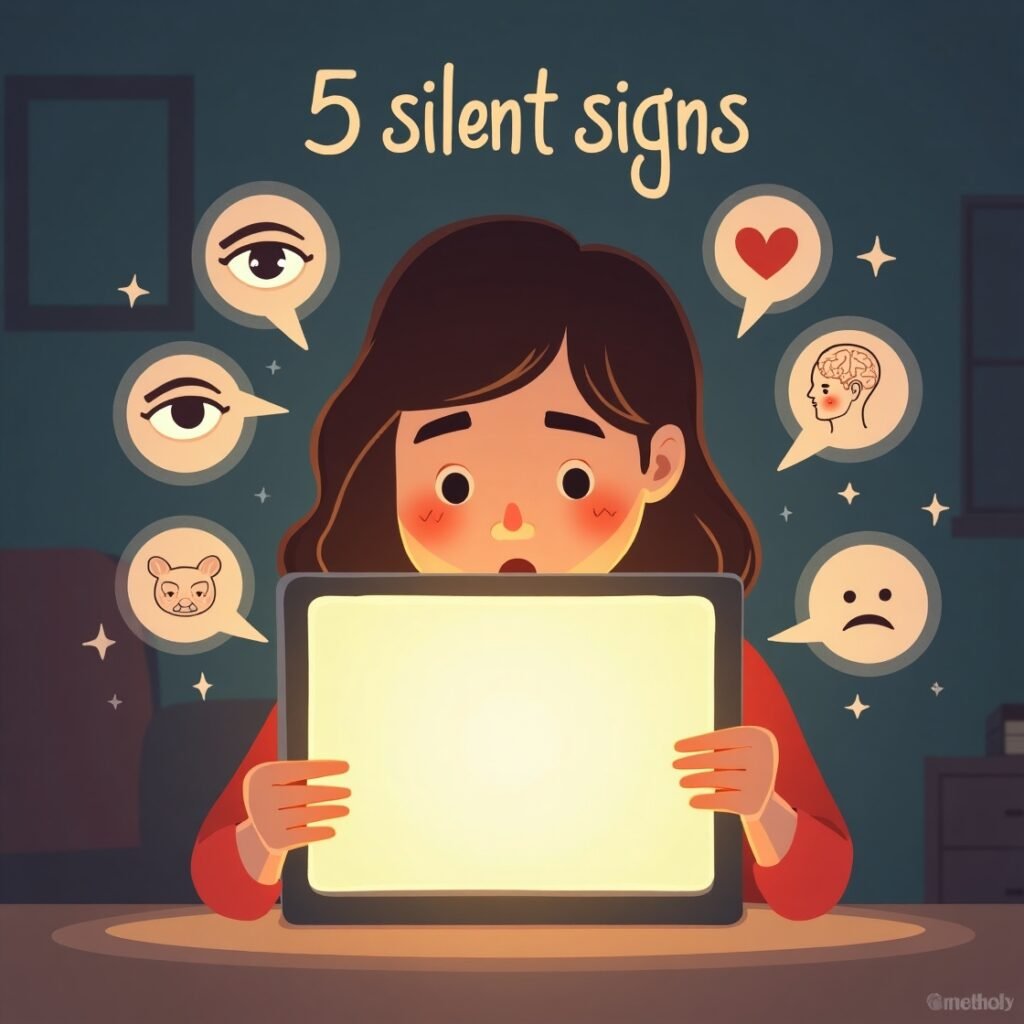
- Constant Cravings: When your child becomes irritable if they don’t have a phone, that’s a warning sign.
- Mood Swings: Angry or sad outbursts when screen time is over.
- Lack of Interest in Toys or Books: Screens dampen the enthusiasm for play things.
- Delayed Learning: Difficulty concentrating on homework or slower language development.
- Sleep Issues: Screens at night tend to interfere with good sleep habits.
Once these symptoms manifest, it’s time to rethink—not how much, but how richly your child uses a screen.
FocusFun: Making Screen Time Grow Time
What if your child were able to practice multiplication playing a game? Or learn new vocabulary solving a puzzle? That’s precisely what FocusFun provides games based on educational psychology, child behavior, and curriculum mapping.
Ages 3 to 14, each game on FocusFun is designed to build:
- ✅ Memory & Concentration (through Picture Hunt, Sequence Games)
- ✅ Mathematics & Logic (through Math Quiz, Pattern Games)
- ✅ Language & Vocabulary (through Word Missing, Spelling Games)
- ✅ Decision-making (through Time Challenges, Strategy Puzzles)
So rather than screen bans, you now possess the ability to take back screens for your child’s development.
A Day in the Life: From Screen Addiction to Screen Transformation
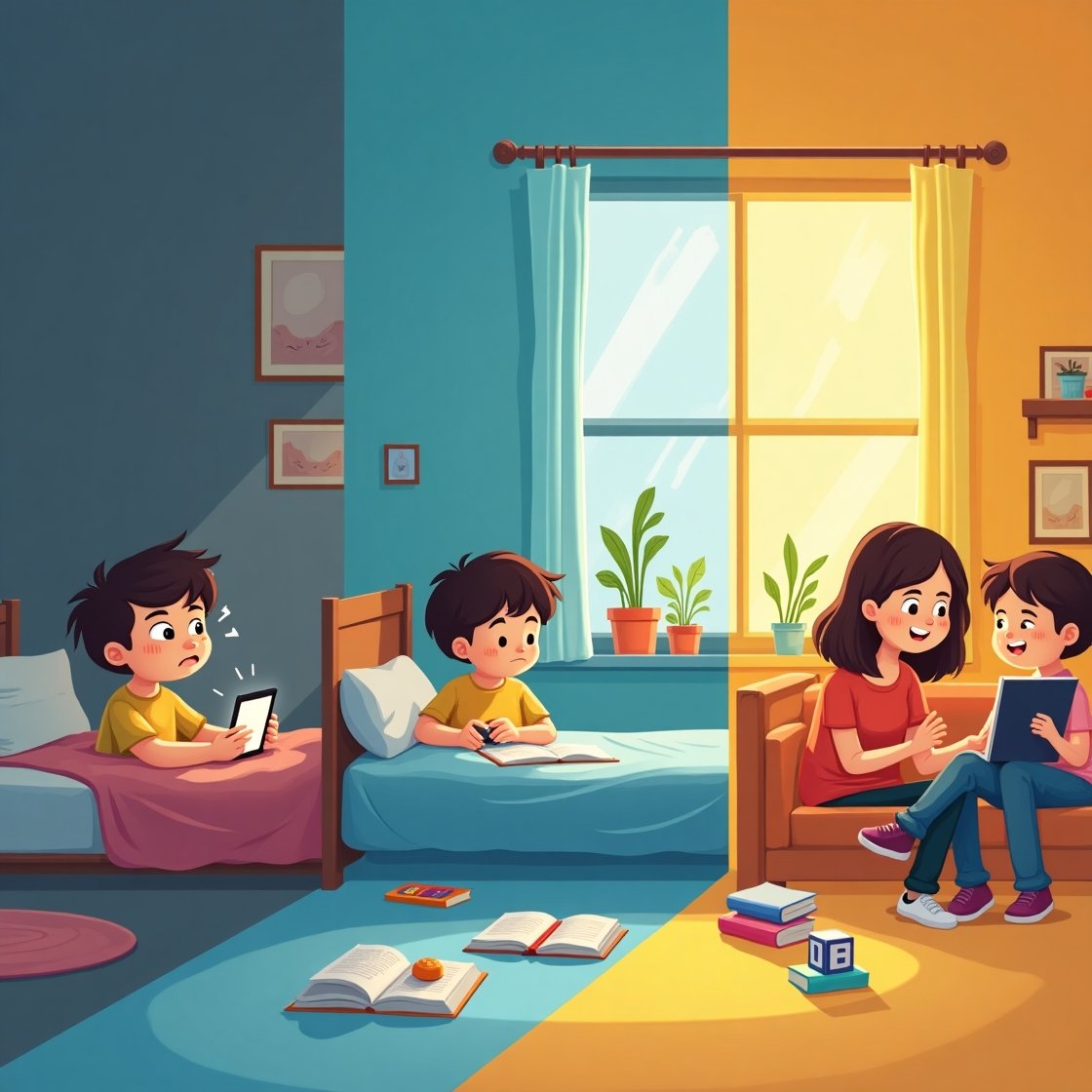
Let’s go back to Aryan. Here’s what his daily routine looked like:
Before FocusFun:
Morning meltdowns, phone at breakfast, random YouTube videos after school, and battles about screen time each night.
After FocusFun:
Morning learning puzzle with mom, 20 minutes of FocusFun Math Race following homework, vocabulary game before dinner—and a peaceful bedtime story, phone-free.
Aryan lost no interest in screens. He just discovered something more interesting to fall in love with.
Why FocusFun Succeeds for Real Families
- Parent Control Dashboard: Monitor what your child plays and how they’re developing.
- Adaptive Learning: Games adapt as your child gets better.
- Educator-Crafted: No flashy coders, but actual teachers and kid specialists.
- Phone Friendly: Use it anywhere—home, travel, waiting rooms.
Unlike most apps that contribute to your screen concerns, FocusFun assists you in establishing screen balance that will work.
What Parents Say
Neha Jain, Delhi:
“FocusFun brought us peace. My 8-year-old now anticipates learning. And I finally stopped guilty about giving her the phone.”
Ravi Kulkarni, Pune:
“I figured out the true issue wasn’t the phone. It was what was being displayed on the phone. FocusFun made a difference for us.”
Still Concerned About Screen Time on Phones?
Then don’t battle the screen. Reframe it. Redesign it. Redeem it.
With FocusFun, you don’t need to constantly monitor and control. You can have confidence the time your child spends on screen is building their brain—not depleting it.
The True Message: Smart Screen Time > No Screen Time
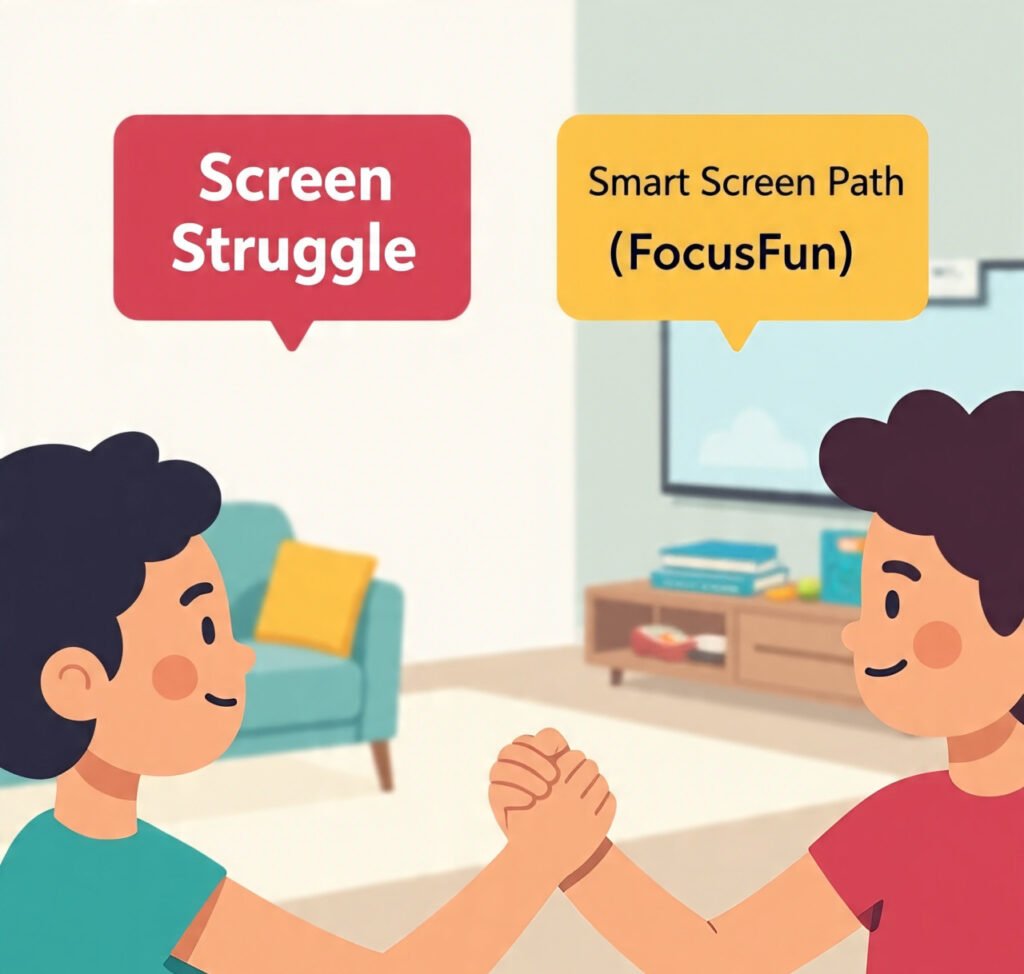
We live in an age of digital technology. Prohibiting screens entirely is neither practical—nor required. What we require is a positive relationship with technology. One that allows children to learn, develop, and think.
FocusFun is not an application. It’s a revolution towards intelligent parenting where screen time does not substitute for childhood, but adds to it.
Final Thought
Phone screen time needn’t be your arch-nemesis. Like any other tool, it’s all about how we employ it. Would you provide your child with a toy that makes him nervous, lethargic, or preoccupied? No. So why provide him with a screen that does the same?
It’s time to make the change from anxiety to acumen. Let your child play, discover, and develop—with intention. Let FocusFun be your companion in bringing up brighter, more joyful children.
Start Today. Let the screen be smart. Let learning be fun. Let FocusFun lead the way.
FAQ: Phone Screen Time for Kids
1. What are the symptoms of mobile addiction in children?
→ Irritability, trouble sleeping, lack of focus, and dependency on screens for entertainment are clear warning signs.
2. How to tell if your child is addicted to their phone?
→ If your child becomes anxious or aggressive when asked to put the phone down, it’s time to reassess their screen habits.
3. What are the behavior of phone addiction?
→ Constant checking, ignoring conversations, mood swings, and avoiding physical play are behavioral red flags.
4. How to tell if your child is addicted to technology?
→ When screens replace reading, playing, or interacting with family, addiction may be creeping in silently.
5. What does a phone addiction look like?
→ It often starts with extended use but grows into emotional dependency, social withdrawal, and mental fatigue.
